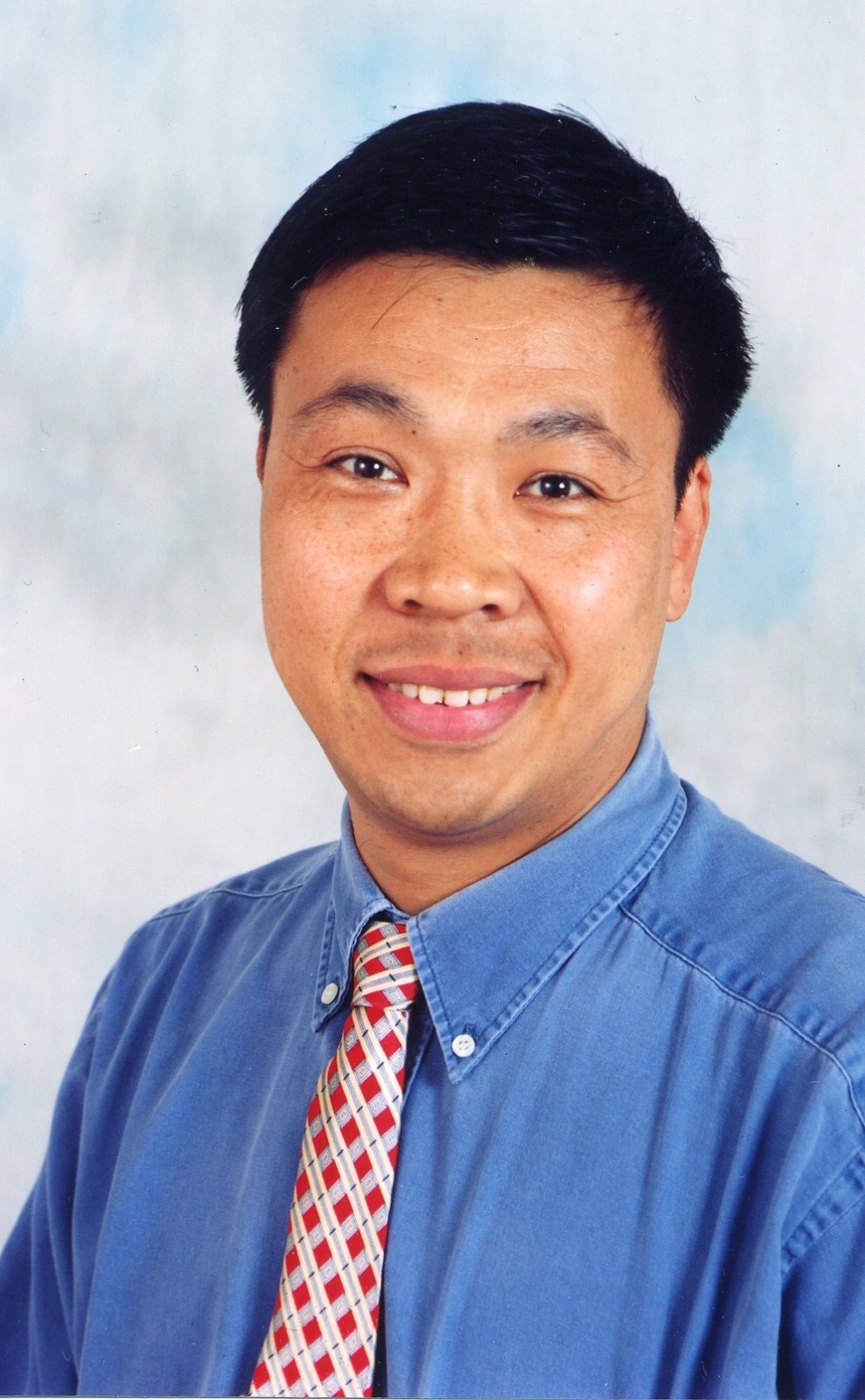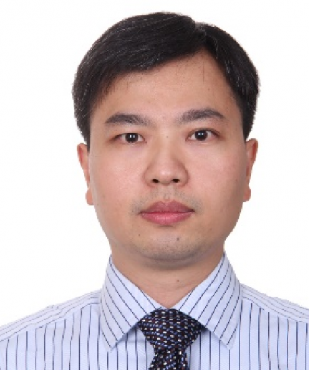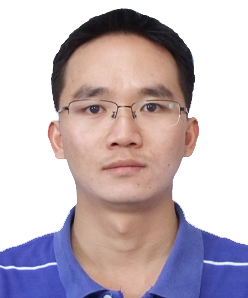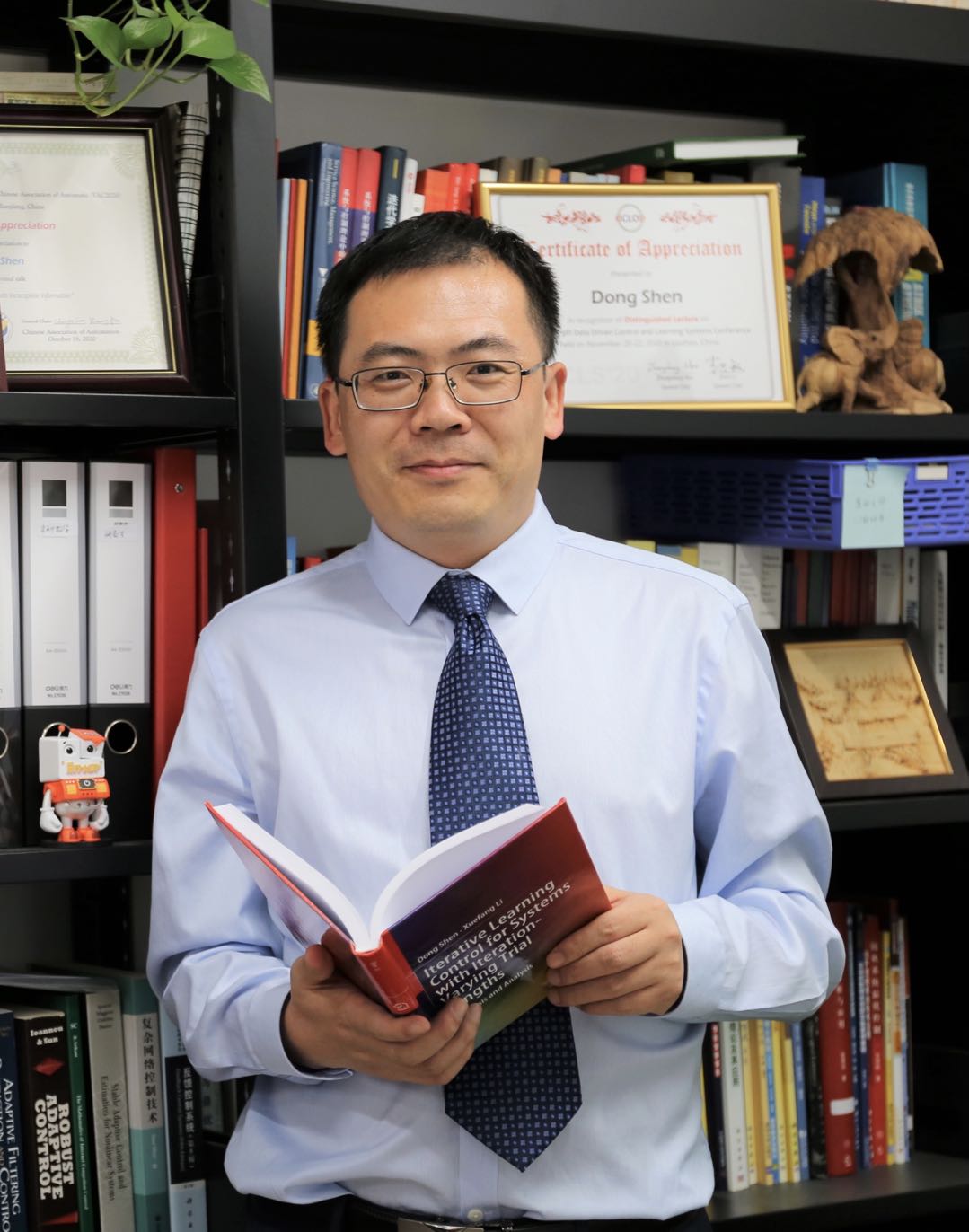
Invited Speakers
| Prof. Lin Chen Macao Polytechnic University, China Bio: Lin Chen is a Full Professor in the School of Computer Science and Engineering at Sun Yat-sen University, which he joined in 2019. He received his B.E. in 2002 from Southeast University, his Engineer Diploma in 2005 and Ph.D. in 2008 from Telecom ParisTech (ENST). He received his Habilitation thesis at University of Paris-Sud in 2017. He was an associate professor at the Department of Computer Science at University of Paris-Sud from 2009 to 2019 and a visiting scholar at National ICT Center of Australia (NICTA) in 2008. His research interests revolve around modeling and design of distributed algorithms in emerging networked systems, with particular emphasis on energy efficiency, resilience, and security. He received the 2018 CNRS Bronze Medal and was a Junior Member of the Institut Universitaire de France (IUF). He has served on the editorial board of several international journals and in the TPC of major conferences in communications and networking. He served as the Chair of the IEEE TCGCC SIG on Green and Sustainable Networking and Computing with Cognition and Cooperation. Title: Entanglement distribution in quantum networks- An algorithmic perspective Abstract:Recently emerged as a disruptive networking paradigm, quantum networks rely on the mysterious quantum entanglement to teleport qubits without physically transferring quantum particles. However, the state of quantum systems is extremely fragile due to environment noise. A promising technique to combat against quantum decoherence is entanglement purification. To fully exploit its benefit, two fundamental research questions need to be answered: (1) given an entanglement path, what is the optimal entanglement purification schedule? (2) how to compute min-cost end-to-end entanglement paths subject to fidelity constraint? In this talk, I will introduce our work on algorithmic analysis on both questions. |
Prof. Jixin Ma University of Greenwich, U.K. Bio: Dr Jixin Ma is a Full Professor of Computer Science in the School of Computing and Mathematical Sciences at University of Greenwich, U.K. He has been the Director of the Centre for Computer and Computational Science and is the Director of the School’s PhD/MPhil Programme. Professor Ma is also a Visiting Professor of Beijing Normal University, Hainan University, Anhui University, Zhengzhou Light Industrial University and Macau City University. Professor Ma obtained his BSc and MSc of Mathematics in 1982 and 1988, respectively, and PhD of Computer Sciences in 1994. His main research areas include Artificial Intelligence, Data Science, and Information Systems, with special interests in Temporal Logic, Information Security, Machine Learning, Case-Based Reasoning and Pattern Recognition. Professor Ma has been a member British Computer Society, American Association of Artificial Intelligence, ICIS/IEEE, World Scientific and Engineering Society, and Special Group of Artificial Intelligence of BCS. He has also been the Editor of several international journals and international conference proceedings, Conference/Program Chair, and Invited Keynote Speakers of many international conferences. Professor Ma has published more than 200 research papers in peer-reviewed international journals and conferences. Title:Temporal Causal Relations Between Events and their Effects Abstract: Time plays a fundamental and vital role in reasoning about action and change, where temporal causal relations between events and their effects can be quite complicated. In some cases, the effects of an event take place immediately after the end of the event and remain true until some further events occur, e.g., in the block-world, as soon as the action “moving a block from the top of another block onto the table” is completed, the block being moved should be on the table immediately; however, sometimes there may be a time delay between an event and its cause(s), e.g., 10 seconds after you press the button at the crosswalk, the pedestrian light turns to green. Also, in some other cases, the effects of an event might start to hold while the event is in progress and stop holding before or after the end of the event. The objective of this talk is to introduce a formalism, which guarantees the common-sense assertion that “the beginning of the effect cannot precede the beginning of the cause”, that is, the so-called most general temporal constraint (GTC) on causations. It is shown that there are in fact 8 possible causal relations which satisfy GTC, including cases where, on the one hand, effects start simultaneously with, during, immediately after, or some time after their causes, and on the other hand, events end before, simultaneously with, or after their causes. It is demonstrated that these temporal causal relations are versatile enough to subsume those representatives in the literature. |
|
| Prof. Jian Chen Professor at Southern University of Science and Technology, China Bio: Jian Chen received the B.E. degree in measurement and control technology and instruments and the M.E. degree in control science and engineering from Zhejiang University, Hangzhou, China, in 1998 and 2001, respectively. He also received the Ph.D. degree in electrical engineering from Clemson University, Clemson, SC, USA, in 2005. He was Research a Fellow at the University of Michigan, Ann Arbor, MI, USA, from 2006 to 2008. From 2013 to 2024, he served as a professor at Zhejiang University. Currently, he is a professor in the School of Automation and Intelligent Manufacturing at Southern University of Science and Technology, Shenzhen, China. His research interests include modeling and control of fuel cell systems, vehicle control and intelligence, visual servo techniques, battery management systems, and applied nonlinear control. He has published three monographs and over 170 refereed journal and conference papers, including those in TAC, Automatica, TRO, and IJRR. He serves as the Technical Editor and AIM Senior Editor of IEEE/ASME Transactions on Mechatronics and is the Program Co-chair for AIM 2024 and AIM 2025. Title:Active fault-tolerant control strategy for PEM fuel cell thermal, health, and lifetime management Abstract: Proton exchange membrane (PEM) fuel cells are regarded as one of the most promising power sources for transportation in the near future. Effective and robust thermal, health, and lifetime management are crucial issues in fuel cell applications. In the first part of the presentation, we investigated sensor fault detection and isolation as well as fault-tolerant control (FTC) for the thermal management of fuel cell systems. We proposed a sliding mode-based active FTC strategy. In the second part of the presentation, we proposed a health management method for PEM fuel cells based on an active fault-tolerant control method with fast electrochemical impedance spectroscopy measurement for fault diagnosis. In the final part of the presentation, we studied fault-tolerant control to extend the lifetime of PEM fuel cells. A fault-tolerant control algorithm was developed to achieve performance recovery under flooding conditions. Subsequently, an active fault-tolerant controller based on the water transfer model and a fault indicator was developed to restore the performance characteristics of PEM fuel cells. The experimental results demonstrate that the proposed three-step strategy is highly efficient in managing the thermal condition, health, and reliability of PEM fuel cells. |
Prof. Keke Huang Professor at Central South University, Deputy Dean of the School of Automation. Recipient of the National "Ten Thousand Talents Plan" Bio: Keke Huang is aprofessor and doctoral supervisorat Central South University, serving asthe Associate Dean of the School of Automation.He is a recipient of National High-Level Talent Special Support Programs (10,000 Talents Program)forYoung Talents,a core member of the national “Huang Dania-style” teaching team and a Distinguished Young Scholar ofHunan Province. He is listed among thetop 2% of scientists globally for his long-term research onmodeling, optimization decision-making, and coordinated control in the process industry in 2023 and 2024.He has published over 80 high-quality research papers in IEEE Transactionsor IFAC journals (including 8 ESI hot papers/highly cited papers), and has been granted over 30 national invention patents. He has led 14 research projects, including key research and development programs of the Ministry of Science and Technology, industrial internet innovation engineering projects of the Ministry of Industry and Information Technology, and general projects of the National Natural Science Foundation of China. He has received the Second Prize of National Science and Technology Progress Award in 2023, theFirst Prize ofHunan Province Science and Technology Progress Award in 2024,the Excellent Young Scientist Award of the Non-Ferrous Metals Society of China, the First Prize of Science and Technology of the Non-Ferrous Metals Industry of China, and the First Prize of Natural Science of the Chinese Association of Automation. Additionally, he serves as the Deputy Secretary-General of the Automation Branch of the Non-Ferrous Metals Society of China, a committee member of the Process Control Committee andthe Fault Diagnosis and Safety Committee of the Chinese Association of Automation. Title:Research on Intelligent Autonomous Monitoring Method for Dynamic Industrial Processes Based on Continual Learning Abstract:Process monitoring is the basis for promoting the intelligent and autonomous operation of industrial processes. However, static learning paradigms based on closed-world assumptions are often difficult to adapt to dynamic industrial processes in open environments. To this end, this report focuses on the dynamic and open characteristics of industrial processes, analyzing the key challenges faced by process monitoring methods in open-set monitoring tasks. Subsequently, the report presents several representative dynamic industrial process monitoring methods based on continual learning. By employing strategies such as trustworthy generation of new condition data and stable memory retention of old condition, these methods enhance the plasticity and stability of monitoring models, thereby ensuring long-term intelligent and autonomous monitoring of dynamic processes. Finally, by exemplifying typical industrial processes, this report demonstrates how it supports and energizes intelligent and autonomous monitoring in dynamic industrial environments. |
|
| Prof. Yong Xu Professor at Beijing Institute of Technology Recipient of the National Natural Science Fund for Excellent Young Scholars Bio: Yong Xu is a Professor at the School of Automation, Beijing Institute of Technology, and a recipient of the National Excellent Young Scientists Fund. His research interests primarily focus on task planning and cooperative control of swarm unmanned systems and their applications, reinforcement learning/data-driven control、security analysis and resilient control of networked systems. Over the past five years, he has published or had accepted more than 40 SCI papers in Automatica and IEEE Transactions, with 33 regular papers as first author or corresponding author. He has also applied for and been authorized 30 invention patents. His work has been recognized through numerous awards and honors, including the Second Prize of the Natural Science Award from the Chinese Association of Automation (2023, 2024), the Young Talent Support Program from the Beijing Association for Science and Technology (2023), and the Outstanding Ph.D. Dissertation Award from the Chinese Association of Automation (2022). He has presided over multiple projects, such as the Young Scientists Fund, Excellent Young Scientists Fund, Postdoctoral Special Funding, and Postdoctoral General Funding. Title:Adaptive Optimal Output Tracking Control Using Online Reinforcement Learning Abstract:Reinforcement learning (RL) serves as a powerful method, bridging the gap between unknown system models and optimal control. However, for the optimal output tracking control problem of heterogeneous unmanned systems with unknown models, existing RL algorithms rely on assumptions such as persistent excitation conditions, historical data storage, and initial stable control strategies. To address the shortcomings of existing algorithms, this report proposes a novel online policy iteration learning algorithm to overcome these limitations. The effectiveness of the proposed algorithm is validated through in-depth comparisons with existing RL algorithms. |
Prof. Dong Shen Distinguished Professor at the School of Mathematics and the Research Center for Applied Mathematics, Renmin University of China Receipt of the National High-Level Young Talent Support Program Bio: Dr. Dong Shen received the B.S. degree in mathematics from School of Mathematics, Shandong University, Jinan, China, in 2005, and the Ph.D. degree in mathematics from the Academy of Mathematics and System Science, Chinese Academy of Sciences (CAS), Beijing, China, in 2010. From 2010 to 2012, he was with the Institute of Automation, CAS. From 2012 to 2019, he was with the Beijing University of Chemical Technology, Beijing, China. He was a Visiting Scholar at National University of Singapore, Singapore, and RMIT University, Australia. He is a Wu Yuzhang Distinguished Professor with the School of Mathematics and the Research Center for Applied Mathematics, Renmin University of China, Beijing, China. His current research interests include iterative learning control, stochastic optimization, and distributed artificial intelligence. He has published 6 monographs and more than 200 refereed journal and conference papers. He serves on the Editorial Board of IEEE Transactions on Automatic Control, ISA Transactions, International Journal of Robust and Nonlinear Control, and Journal of the Franklin Institute, and Early Career Advisory Board of IEEE/CAA Journal of Automatica Sinica. He is currently the deputy director of the Technical Committee on Data-Driven Control, Learning and Optimization of the Chinese Association of Automation, a member of the Technical Committee on Control Theory of the Chinese Association of Automation, and a member of the Technical Committee on Intelligent Control and Systems of the Chinese Institute of Command and Control. He was selected for the National High-Level Young Talent Support Program, included in the list of the world's top 2% scientists, and has won honors such as the Second Prize of Henan Provincial Natural Science Award, the Second Prize of Shandong Provincial Natural Science Award, and the Young Author Award of the IEEE Control Systems Society Beijing Chapter. Title:Iterative Learning Control over Random Fading Channels Abstract:This talk will present several recent advancements of our research group regarding the iterative learning control problem over random fading channels. First, we briefly summarize the iterative learning control method and the modeling of random fading channels, and put forward the control design and analysis problems brought about by random fading channels as a type of incomplete information. Second, we introduce relevant work from two aspects: when the statistical information of the fading channel is known and when it is unknown. In the case where the statistical information of the fading channel is known, the problems caused by the fluctuations of the input signal and the relevant results of using the average operator will be mainly introduced. In the case where the statistical information of the fading channel is unknown, the iterative estimation method and the noniterative estimation method for the unknown information will be mainly introduced. |
|





